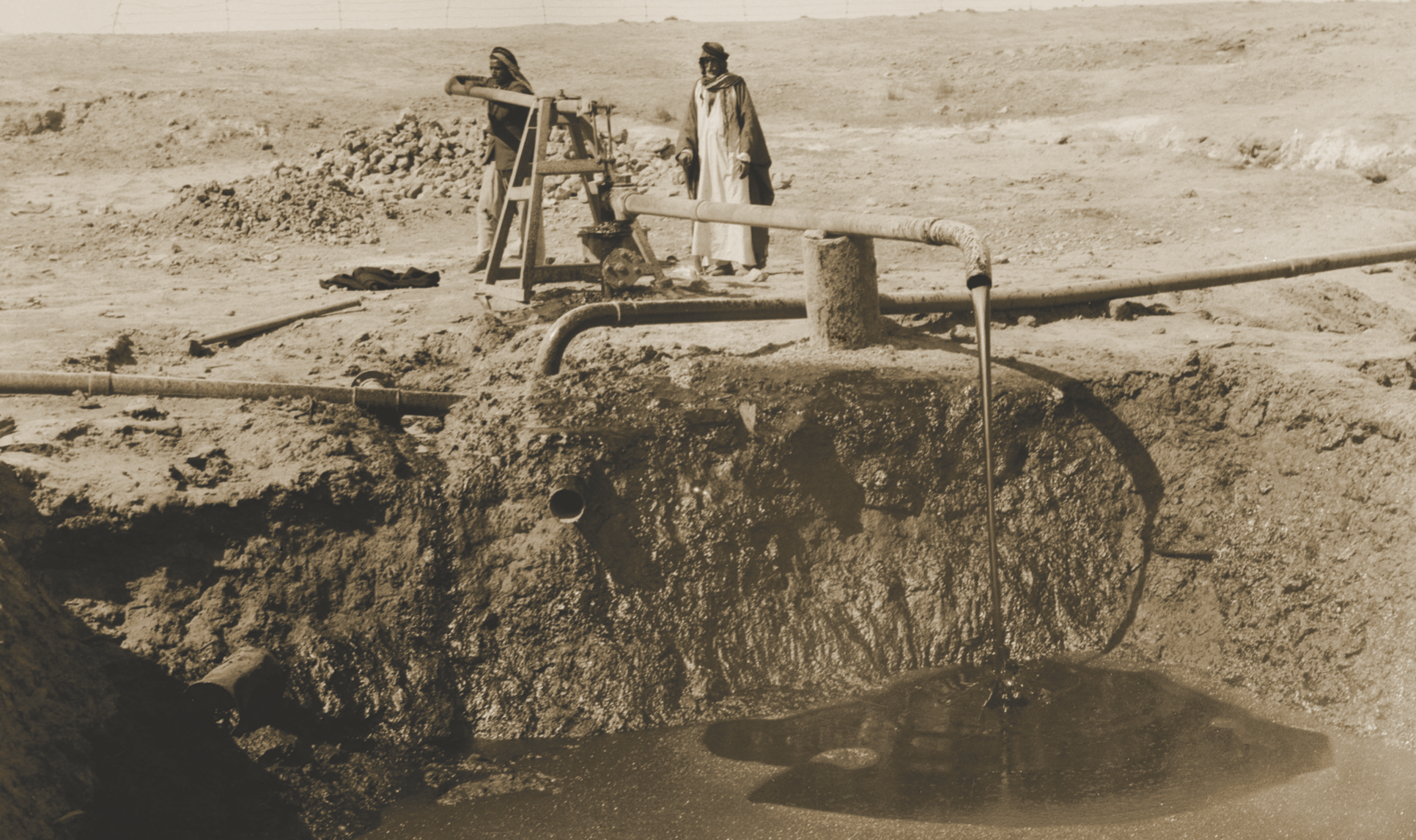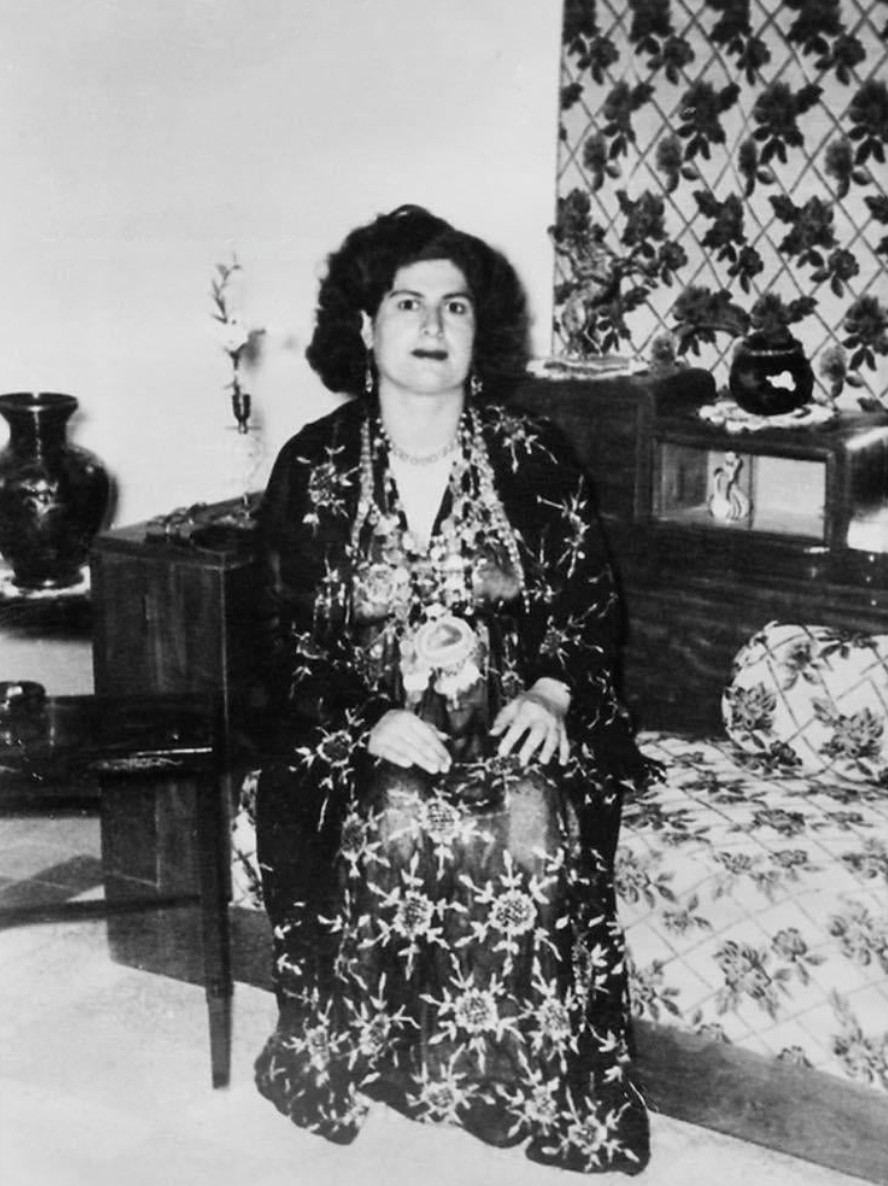In the 1890s, there was a growing belief that Iraq, then a province of the Ottoman Empire, possessed significant oil and gas reserves. This belief sparked negotiations between European actors and the Ottoman Sultan's Civil List, or Privy Purse, in Istanbul, about securing exploitation rights for these resources. Following the successful appropriation of these rights in 1909 (a year after the Young Turks Revolution), the Turkish Petroleum Company (TPC) was established in 1912.
The TPC's shares were divided among the British, Germans, Turks, and an Armenian-Turk named Calouste Gulbenkian, who held a 5% stake and was nicknamed "Mr. 5%." On June 28, 1914, the Ottoman Grand Vizir agreed to lease to the TPC the already discovered and any potential petroleum deposits in the vilayets of Mosul and Baghdad. Following the dissolution of the Ottoman Empire at the end of World War I, this agreement served as the basis for the TPC's application to the newly formed Iraqi government for a concession for the aforementioned regions. In 1920, in accordance with the San Remo mandate, France assumed control of the 25% shares previously owned by Germany.
Postwar oil and geopolitics
Following the Treaty of Lausanne, the League of Nations delimited the borders between Iraq and Turkey in 1926, with Iraq receiving the Mosul vilayet and Turkey receiving 10% of the royalties for the oil produced in the Baghdad and Mosul vilayets for 25 years. The Iraqi Government granted a defined 75-year concession covering these areas in March 1925. The Americans were then given 23.75%of the TPC's shares under the name Near East Development Corporation. Similar shares were held by the French company Francaise des Petroles (later Total), the British Anglo-Persian Oil Company (later BP), and the British-Dutch Royal Dutch Shell, with Gulbenkian holding the remaining 5%. The TPC renamed itself the Iraqi Petroleum Company in 1929, and the concession, though modified several times, lasted until 1972 when Iraq nationalized its oil resources.
Meanwhile, the Kurds were granted self-determination by the Treaty of Sevres in 1920, but this promise was revoked or ignored in the 1923 Treaty of Lausanne, which promised Iraqi Kurdistan autonomous status only. Kurdistan was now included in the old Baghdad vilayet's oil concessionary areas. The Mosul vilayet, along with parts of Kurdistan promised to France in the 1916 Sykes-Picot Agreement, became part of the newly formed state of Iraq.
The natural conclusion is that modern Iraq, rather than being a cohesive nation-state, is shaped primarily by its abundant oil wealth. Iraq's formation as a state can be said to have occurred in the aftermath of World War I, during the disintegration of the Ottoman Empire and the establishment of the new Middle East. Unlike other postwar states however, the formation of Iraq as well as its rugged course of development as a state, were heavily influenced by its significant oil resources.

The causes of its creation as an artificial state—even the monarchy was imported from outside Iraq—were founded on greed and wealth rather than 'national' factors. Iraq as a state experienced turmoil in the years 1936, 1942, 1948, 1958, 1963, 1967, 1968, 1979-1988, 1990-2003, and 2014-2016. It is now a textbook example of a rentier state that meets all of the classical conditions proposed by Charles Tilly (1985) (What were those conditions? And what do they diagnose or signal?). Such states derive most of their revenues from the outside world and the functioning of their political system depends to a large degree on accruing external revenues (Rolf Schwarz, 2008). With the experience of state failure in many parts of the developing world, the famous dictum that "war makes states" has been revived in recent years.
Outside of a brief period in modern Iraqi history (1920-1950), the political system and economy became heavily reliant on oil rents. The establishment of the Majlis Al-Imar al-Aala in 1950 signaled a paradigm shift in which oil revenues became critical to the government budget and thus to economic development. Ironically (This idea seems to build more on the events of 1950 rather than act as something surprising or amusing), the major economic projects in Iraq that formed the foundation of its current infrastructure were either completed or planned during the 1950s. The degradation of representation and the fragile democracy that existed during the monarchy were direct consequences of the newly formed rentier state, not rentier economy. The period between the mid 1930s and 1940s marked the beginning of political instability and turmoil, which culminated in 1958 with the drastic change of the political system through military force. Thus, since its independence in 1932, Iraq's political history has cycled between a weak rentier state, a war-making strong rentierism state, and a de-formed rentier state in the aftermath of Kuwait war in 1991.
Kurdistan and its potential
Kurdistan stands on the shoulders of a century of Iraqi experience. Major powers thwarted the Kurdish people's aspirations for an independent nation-state during this period, instead offering promises of autonomous status that were never fulfilled.
Kurdistan's social structure is primarily tribal but also has ethnic and linguistic homogeneity. Throughout history, the region has had peaceful relations with its ethnic and religious minorities. Centuries of coexistence and shared land and heritage have blurred these distinctions. Despite this, Kurdish society in Iraq has faced significant racial and ethnic discrimination. Kurds, like other minority groups, have been treated as a minority within an Arab-majority population. This difficult situation has resulted in a commitment to fair governance and security for all minorities in Kurdistan.
Kurdistan's historical connection with its homeland and geography remains strong. The concept of a historical homeland is firmly rooted in the region's past and continues to be relevant in the present day.
Another irony is that the same oil that prevented the formation of the Kurdish state may one day play a significant role in the formation of a new Kurdish state. Only after clear indications of oil wealth in Kurdistan did the British redraw the map of Iraq after revoking the Sykes-Picot agreement. That map of Iraq is fundamentally based on knowledge of the presence of oil within Kurdish territory. For the same reason, the Kurds were denied the right to self-determination.
The former IPC, like successive Iraqi governments, dabbled in Kurdistan. Kurdistan's total number of drilled wells did not exceed 28 boreholes. Since 2005, the number has risen to more than 100. The discovery of oil in Kurdistan is thought to be one of the main reasons for the annexation of southern Kurdistan (the Kurdistan region) into Iraq and the revocation of the Sykes-Picot agreement. The marginal development of oil exploration in Kurdistan was actually intended to stymie Kurdistan's economic development and, as a result, reduce the possibility of economic and political autonomy and future independence. Fearing that Kurdistan would seek independence if it became economically powerful, all Iraqi governments have avoided exploration in Kurdistan, even during periods of peace.
Can oil be seen as a driver of self-determination?
The current school of thought emphasizes Kurdish nationalism within the boundaries of existing states while rejecting the concept of trans-nationalism altogether. However, when state formation and construction are possible, some authors, such as Denise Natalie (2012), argue that "Iraqi Kurds are likely to continue their drive for greater autonomy, aiming to transform their status as a dependent quasi-state in Iraq or economic vassal state of Turkey into their own self-sufficient independent entity." A similar conclusion is reached by columnist David Romano: "On pragmatic grounds, Kurdish leaders could avoid maximalist approaches; however, if there is increasing instability in Iraq, they might also tell international partners that they deserve to be released from a failed state."
Clearly, such authors see past the current status quo and believe that Kurdistan will eventually become an independent state. Others, such as Dutch journalist and writer Joost Hiltermann, believe that asymmetric federalism models are the best mechanisms for power sharing. These analyses and conclusions are undoing and unraveling at least some of what the Sykes-Picot agreement had knitted in the aftermath of the strange, unpredictable, chaotic upheaval and massive complexities of the 'Arab Spring,' specifically in Syria.
Although the Kurdish region's oil resources are roughly a tenth of those of Iraq, they are still significant given that the region has a population of nearly 5 million people. Current discovered resources are most likely greater than those of OPEC member Ecuador (population 15 million) or major exporter Azerbaijan (9 million). At current oil prices, the Kurdistan Regional Government planned to reach a production capacity of 1 million barrels per day by 2016, which would have generated enormous revenues. The author of The Myth of the Oil Crisis, Robin Mills, saw this as evidence that Kurdistan's oil resources could serve as the foundation for a viable economy.
Dr. Kamal Kolo, based in Erbil, serves as a distinguished professor specializing in Petroleum and Biogeosciences at Soran University. Alongside his noteworthy scientific endeavors, he has contributed to the literary world with several authored and co-authored books. Some of his notable works encompass "Es War Einmal in Aradin," "Das Ende Des Babylonischen Exiles," "Inside Out: Textorientierte Erkundungen des Werks von Annemarie Schwarzenbach," and "Iraqi Kurdistan Region A Path Forward."

